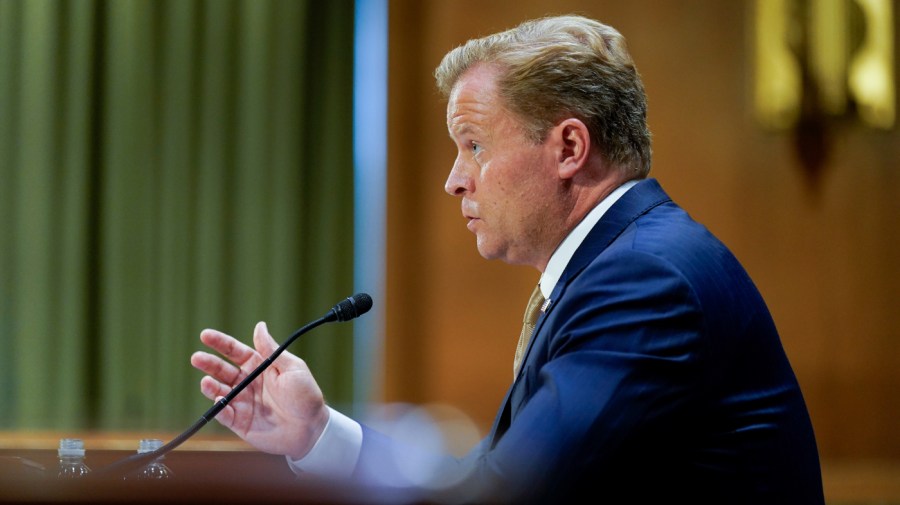Contract gambling has become a runaway train

On July 21, the Senate Agriculture Committee’s scheduled vote to confirm Brian Quintenz — a financial manager and former commissioner of the Commodity Futures Trading Commission — as the commission’s new chair, was postponed. On Monday, another committee vote on Quintenz was postponed.
Officially, the delays were due to lack of a quorum and White House concerns. But unofficially, insiders speculated that they were due to growing opposition to Quintenz, who is also a board member of Kalshi, a gambling company promoting future 24/7 games of chance on anything, anywhere.
By the end of July, insiders noted that the opposition to Quintenz was still growing both within the Senate Agriculture Committee and throughout the U.S. Senate. Withdrawing the Quintenz nomination appeared to be an option gaining support.
Since 2024, Kalshi has won several prime legal cases which arguably permit all types of 24/7 gambling everywhere on anything under the guise of legal events contracts.
Kalshi-type gambling was sanctioned by the CFTC on May 5 when the commission unexpectedly dropped its case by filing a three-page surrender to Kalshi in the D.C. Circuit Court of Appeals. Accordingly, predictions markets can now gamble on elections, climate change and any “future event” such as sports events.
Allegedly bypassing all state and federal gambling regulations throughout the 50 states, Kalshi and its events contracts are still opposed by 34 states. On June 17, those states filed an amicus brief on a New Jersey case against Kalshi before the Third U.S. Circuit Court of Appeals.
However, Kalshi is still offering its gambling-type events contracts, including sports gambling, in anticipation of winning in the Third Circuit or on further appeal to the U.S. Supreme Court.
The week before President Donald Trump’s inauguration on Jan. 20, Donald Trump Jr. was hired by Kalshi as an adviser. At that time, Kalshi was attempting to force the CFTC to allow de facto gambling via the predictions markets through the courts.
On Feb. 11, President Trump nominated Quintenz to chair the CFTC. On May 5, the CFTC dropped its case against Kalshi and on June 10, Quintenz’s nomination hearing was held before the Senate Agriculture Committee.
During his nomination hearing, Quintenz was pointedly questioned by Sen. Cory Booker (D-N.J.) regarding apparent conflicts of interest, particularly when Quintenz repeatedly stated that he supported Kalshi-type events contracts as legal.
Sen. Adam Schiff (D-Calif.) also vigorously queried Quintenz on the conflict of sports gambling events contracts with the Indian Gaming Regulatory Act, but Quintenz still defended the legitimacy of the Kalshi-type events contracts.
The CFTC’s original 2021 position against Kalshi’s proposals, which prevailed until it abandoned its position in May, was supported via letters from multiple members of Congress. However, in 2021 as CFTC commissioner, Quintenz supported Kalshi’s proposals. On Nov. 16, 2021, Quintenz joined Kalshi’s board of directors.
Since January, Kalshi has been offering sports event contracts which, for March Madness, were “expanded to single-game outcomes” on basketball games, reportedly constituting 16 percent of all March Madness wagers.
Kalshi’s arguments have prevailed in every significant court case, thereby obviating state and federal prohibitions. Their victories have also enabled similar gambling companies such as DraftKings as well as trading platforms such as Robinhood.
Strategically, the universal gambling enabled via events contracts destabilizes Wall Street norms and the predictions markets. This macroeconomic scenario emulates the regulatory debacle of the credit default swaps, including the 2000 Commodity Futures Modernization Act, which largely precipitated the 2008 Great Recession.
These 2025 trends toward uncontrolled and irrational gambling were also exemplified as people legally bet on the wildfires in California and other news events.
Such extensive gambling activities, which are now largely unregulated and being combined with artificial intelligence applications, need to be addressed as a strategic economic threat to U.S. national security and the international strategic economic base.
For 30 years, congressional hearings have noted that as legalized gambling continues to grow it becomes a threat to U.S. economic national security.
A 1995 hearing before the House Judiciary Committee which included testimony and input from economic national security interests, as well as organized crime, culminated in the enactment of the U.S. National Gambling Impact Study Commission.
In 1999, the commission’s final report called for a moratorium on the expansion of any type of gambling anywhere in the U.S. It included a four-year analysis by U.S. experts which concluded that the Kalshi-type of internet gambling could not be regulated and should remain forever banned.
The Kalshi and CFTC situation proves the validity of the U.S. Gambling Commission’s warnings, and demonstrates to Congress and the public that new congressional hearings are essential.
John Kindt is a professor emeritus of law, business and economics at the University of Illinois Urbana-Champaign and has served as a senior editor, contributing author and intermittent co-author of the United States International Gambling Report and the United States International Gaming Report.